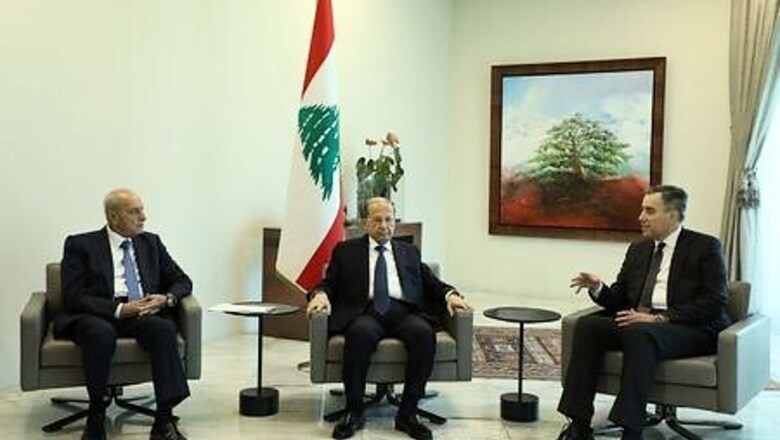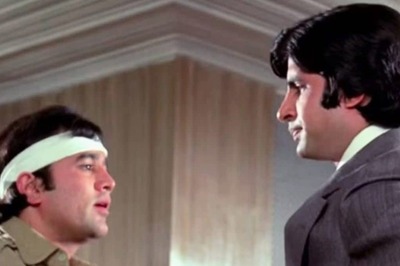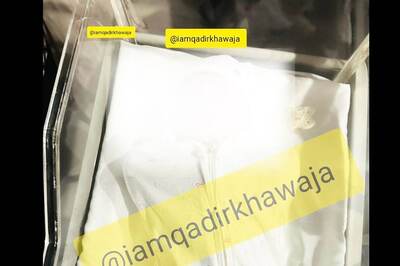
views
BEIRUT: Lebanese leaders named diplomat Mustapha Adib as the new prime minister on Monday under pressure from French President Emmanuel Macron who will visit Beirut to press for reforms aimed at dragging the Middle East nation out of a financial abyss.
With its economy devastated by a financial crisis, a swathe of Beirut in tatters following a huge port explosion on Aug. 4 and sectarian tensions rising, Lebanon is facing the biggest threat to its stability since the 1975-90 civil war.
Adib, the former ambassador to Germany, was named hours before Macron was due in Beirut for his second visit in less than a month. The French president will push politicians to enact reforms that donors have demanded to tackle corruption and waste before they will release financial support.
Senior Lebanese officials said Macron’s mediation was essential in securing agreement on a new prime minister in the 48 hours before consensus emerged on Adib. Politicians were deadlocked last week over who to choose.
“The opportunity for our country is small and the mission I have accepted is based on all the political forces acknowledging that,” said Adib, who won the support of nearly all Lebanon’s main parties in consultations hosted by President Michel Aoun.
He called for the formation of a government in record time, an immediate start to reforms and an agreement with the International Monetary Fund (IMF). Lebanon’s talks with the IMF on vital support have been stalled since early July.
Forming governments has often taken months in the past.
“There is no time for talk and promises … It’s the time to work with everyone’s cooperation,” Adib said, adding that he aimed to form a team of competent specialists.
Adib, who has a doctorate in law and political science, later visited areas hardest hit by the port explosion that killed some 190 people and injured 6,000.
“Our children died. We don’t recognise you,” a passerby shouted at him as he inspected the shattered Gemmayze and Mar Mikhael areas. Another offered to shake hands with Adib, who wore a facemask as Lebanon’s battles a surge in coronavirus cases.
The explosion, caused by what the authorities say were 2,750 tonnes of ammonium nitrate stored at the port, led to the resignation of the previous government headed by Hassan Diab, now acting as caretaker.
UNDER PRESSURE
Since October, the crisis has sunk Lebanon’s currency, locked savers out of deposits held by a paralysed banking system and fuelled poverty and unemployment. The root cause is decades of corruption and waste overseen by the sectarian elite.
Macron made a series of phone calls to Lebanese leaders at the weekend that were vital to securing consensus on Adib.
“It was the pressure of his calls to everyone, the pressure of his coming to Lebanon, the pressure of everyone not wanting to upset him,” a senior Lebanese politician said.
A French presidency source said Macron was demanding “a government of mission, clean, efficient, able to implement the necessary reforms in Lebanon”.
Macron told journalists on Friday that the exceptional moment facing Lebanon had led him to apply more pressure.
“France has convinced its European and American partners and a good part of the regional partners that we are honest brokers,” he said.
Adib’s name surfaced on Sunday when he was nominated by former prime ministers, including Saad al-Hariri who heads Lebanon’s biggest Sunni Muslim party. The post of prime minister must go to a Sunni in the Lebanese system.
Hariri’s Future Movement and the powerful Iranian-backed Shi’ite party Hezbollah were among those nominating him.
With Hariri’s backing, Adib will enjoy more support than the Diab government, which was nominated by Hezbollah and its allies which together have a parliamentary majority.
Lebanon won pledges of more than $11 billion in support at a Paris conference in 2018 conditional on reforms that it failed to carry out, such as fixing an electricity sector that bleeds state funds yet still fails to supply 24-hour power.
On top of the economic crisis, sectarian tensions erupted last week in a deadly shootout between Sunni and Shi’ites south of Beirut.
Disclaimer: This post has been auto-published from an agency feed without any modifications to the text and has not been reviewed by an editor




















Comments
0 comment